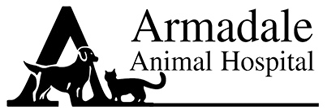Compulsive and Repetitive Behaviors in Dogs
Compulsive and Repetitive Behaviors in Dogs
Dogs, like humans, can exhibit certain compulsive and repetitive behaviors. These behaviors can range from mildly bothersome to severely disruptive. Understanding these behaviors and knowing when to seek help is crucial for your dog's well-being.
Common Compulsive and Repetitive Behaviors:
-
Tail Chasing: Tail chasing can be a sign of boredom or anxiety and can be seen in many breeds.
-
Excessive Licking: Some dogs may excessively lick themselves, objects, or even people. This behavior can stem from stress or underlying medical issues. Excessive licking can lead to lick granulomas that need medical treatment.
-
Pacing: Dogs like Border Collies and other high-energy breeds may pace repetitively. This could indicate nervousness or lack of mental stimulation.
-
Flank Sucking: Common in Dobermans, flank sucking involves the dog sucking on its side or flank. This behavior may start as a self-soothing action but can become compulsive.
-
Compulsive Eating: Common in Labrador Retrievers and Beagles, dogs may develop compulsive eating behaviors, including eating non-food items (pica). This can be due to anxiety, boredom, or underlying medical issues.
-
Fly Biting: Some dogs may snap at invisible flies. While this can be seen as a compulsive behavior, it is most often linked to neurological issues, especially in breeds like Cavalier King Charles Spaniels. Report this type of behavior to your vet any time it is noted.
When to Seek Additional Help/Treatment:
-
If the behavior is constant or escalating.
-
If there is physical harm involved, such as sores from excessive licking.
-
If the behavior is impacting the dog's daily activities or quality of life.
-
If the behavior is disrupting household routines.
-
If you notice any other signs of distress or discomfort in your pet.
-
Any time you notice fly biting behavior.
Compulsive and repetitive behaviors can often be managed with training, environmental enrichment, and, in some cases, medication. Consult your veterinarian for proper diagnosis and treatment options tailored to your dog's specific needs.
